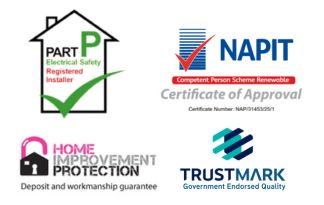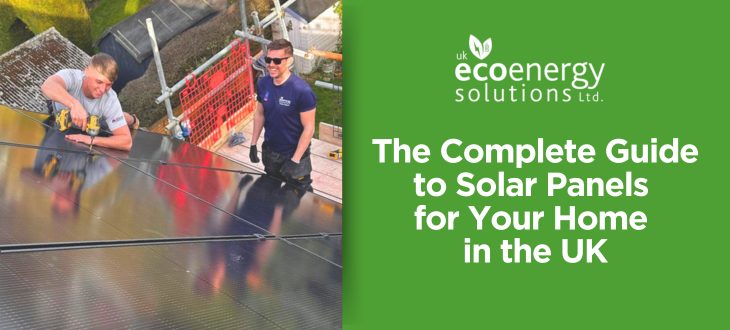
Thinking about installing solar panels for your home in 2025?
Why Solar Panels Are a Smart Choice for Your Home in 2025
As UK households continue facing rising energy prices and growing environmental concerns, installing solar panels for your home has become more attractive than ever. In 2025, both the economic and environmental benefits of solar for home use are compelling, thanks to lower installation costs, government incentives, and improved solar technology.
Environmental Benefits: Clean Energy for a Sustainable Future
Switching to solar energy is one of the most effective ways homeowners can reduce their carbon footprint. Solar panels produce electricity without emitting greenhouse gases, which supports the UK’s legally binding target to reach net-zero emissions by 2050. By generating clean power directly from your roof, your home avoids the pollution linked with fossil fuels and contributes to cleaner air and water in your community.
Additionally, the environmental benefits of solar go beyond carbon reduction. Solar systems operate quietly, produce no waste, and help preserve natural ecosystems. Recent climate data from the Met Office highlights that the UK has experienced more sunshine and warmer conditions in recent decades—a trend that further boosts the viability of home solar energy. With better weather patterns, households can now expect more efficient and consistent clean energy generation.
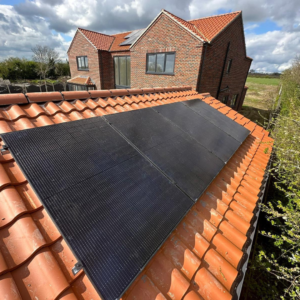
Economic Benefits: Long-Term Savings and Incentives
UK homeowners have seen solar panel prices plummet in the past decade, with costs now up to 80% lower than in 2010. This steep decline means more households can invest in generating their own power, cutting reliance on the national grid and lowering monthly utility bills.
Solar adoption in 2025 is being strongly supported through several UK government-backed incentives. Homeowners can save with 0% VAT on solar equipment—potentially trimming thousands off installation costs. Programs like the Smart Export Guarantee (SEG) allow users to earn back from unused power sent to the grid, while schemes such as ECO4 make solar technology accessible to qualifying households at no cost.
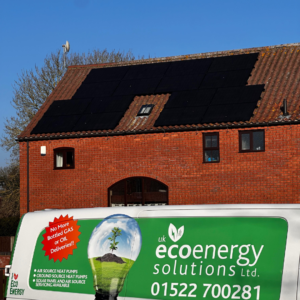
Greater Energy Independence
Owning solar panels for your house gives you greater control over your energy use. It reduces your dependency on the national grid and protects you from unpredictable energy price hikes. For even more impact, homeowners are increasingly combining solar systems with home batteries and electric vehicle chargers, creating fully self-sufficient energy setups.
Types of Solar Panels for UK Homes
Choosing the right solar panel system for your house can significantly impact your energy output, long-term savings, and even how your roof looks. Here’s a quick comparison of the three main types of solar panels used in UK homes, each suited to different needs and budgets for home use.
Costs of Installing Solar Panel System at Home
There’s no one-size-fits-all price for solar panels for your home, but several UK-specific factors will shape the final bill:
System size and energy needs
The more energy your home uses, the larger the system you’ll need. For example, a small 3kW setup may suit a terraced home, while a larger 6kW system is often ideal for bigger detached houses. Though the upfront cost is higher for larger systems, they typically offer better long-term savings.
Roof condition and accessibility
UK homes vary in age and structure, and that can impact labour and material costs. If your roof needs reinforcing or has tricky access—like a steep pitch or awkward layout—expect some added expense. In addition, properties with slate or fragile tiles may also require custom mounting solutions.
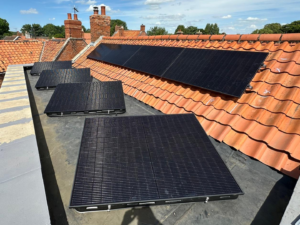
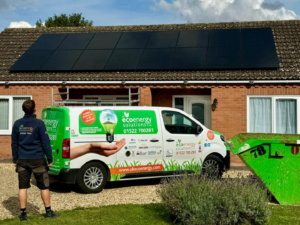
Installation complexity
Not all installations are straightforward. Some homes may need upgraded wiring, special mounting frames, or inverter placement adjustments, which can raise the overall installation time and cost.
Type of panels
Monocrystalline panels, known for their sleek black appearance and high efficiency, are more expensive but ideal for those with limited roof space. Polycrystalline panels, on the other hand, are more affordable and still perform well under typical UK weather conditions.
Extra equipment (like batteries and bird mesh)
If you’re looking to store excess power and reduce grid reliance, adding a battery storage system is a popular option. A standard home battery can cost anywhere from £2,900 to £10,000 depending on capacity. While it raises initial costs, it can significantly increase your energy independence.
As a platinum partner of Duracell Energy, UK Eco Energy Solutions offer reliable technology, backed by expert installation and ongoing support.
Bird-proofing is also essential. Birds nesting under solar panels can cause wiring damage, lower performance, and lead to costly repairs. We recommend high-quality bird mesh to protect your system and preserve its efficiency over time.
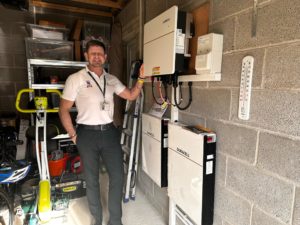
Regional labour rates
Installation costs can vary across the UK. In larger cities or remote areas, you might find quotes are slightly higher due to labour demand or travel time. As we are a local company, no such high labour costs apply.
Additional costs may include:
Inverter replacement (every ~12 years): ~£900
Annual servicing: ~£100–£200
Panel cleaning (if needed): ~£4–£15 per panel
*Tip: It’s usually more cost-effective to install battery storage at the same time as your panels, rather than adding it later.
How Solar Panel Installation Works
The process of installing a solar panel system for a home in the UK typically follows a few key stages:
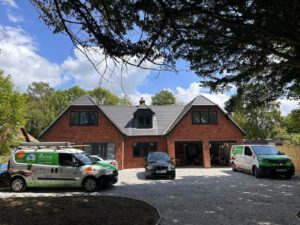
1. Home Survey
One of our professional technical team conducts a site visit to assess the roof structure, orientation, shading, and energy usage. This ensures the system design is tailored to the property and maximises efficiency.
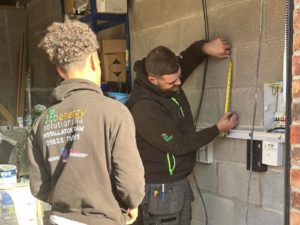
2. System Design
Based on our survey, a bespoke system is designed, taking into account panel type, roof space, battery storage options, and inverter placement. A good design aims to balance the upfront cost with long-term return on investment (ROI).
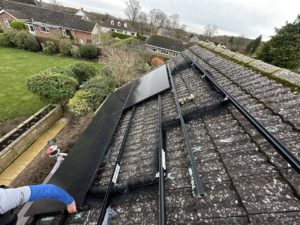
3. Installation
Most domestic installations are completed within a day or two. Our professional electricians and roofing team fit the mounting system, panels, inverter, and connect the system to the home’s electrical supply. All work should meet MCS (Microgeneration Certification Scheme) standards.

4. Testing & Handover
After installation, the system is tested to ensure it’s working correctly. Homeowners are shown how to monitor performance, including how much energy is being generated and used. An app is available for the homeowner to monitor the system’s performance.
How Much Can You Save With Solar Panels in 2025?
Installing solar power for your home can lead to significant savings. A typical UK household could reduce electricity bills by up to 50-70 percent, around £400–£700 per year, depending on system size, energy usage, and sunlight exposure.
Curious about your potential savings? Use our Solar Savings Calculator to get a tailored estimate based on your home and usage.
Ready to power your home with clean energy?
Switching to solar power isn’t just a smart financial decision—it’s a move toward a more sustainable, energy-independent future. With rising energy prices and more incentives available than ever, now is the ideal time to consider solar panels for your home.
Get your free quote today or call us on 01522 700281 to discover how much you could save with a system tailored to your needs.


